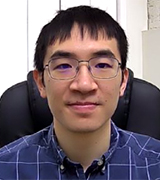| Graduate Students |
|
| |
|
Anisha Datta
Immunotherapy has shown great promise as a cancer therapeutic; however, its efficacy is limited to a subset of patients, necessitating further study of the mechanisms at play. One mechanism of particular interest is the recruitment and infiltration of T cells into the tumor, as studies have shown that tumors that have been infiltrated by these adaptive immune cells respond positively to immunotherapies as compared to tumors that do not have T cell infiltration. Given that there is cross-talk between innate immune cells and adaptive immune cells - in that the former help prime and activate the latter - there has been great interest in the factors that contribute to and determine whether innate immune cells carry out this vital function. My project focuses on a family of receptor tyrosine kinases known as the TAM receptors, and I am specifically studying Axl. Studies have demonstrated that targeting Axl and blocking it from carrying out its functions yields an immunostimulatory state in innate immune cells and decreases aggression and invasion in cancer cells. Thus, it is likely that anti-Axl therapies may synergize with immunotherapies. My work aims to understand how anti-Axl treatment alters the tumor immune landscape, thereby allowing for a better understanding of which immunotherapies it would synergize with as well as which patients would benefit most from such a combination.
|  |
| |
|
Christine (Davis) Wiggins
My research interest is in using high-throughput data generation methods, large datasets, and computational models to investigate infectious disease impact, progression, and biomarkers. I am particularly interested in intrinsic variation in immune response within populations in addition to differences between disease severities. Currently, I am researching immune response and mechanisms of protection for tuberculosis.
|  |
| |
|
| |
|
Diana Gong
I am interested in understanding the heterogeneity of response of different cell types and different patients to inflammatory and infectious disease. Currently, I am analyzing how different mutations impact the immune environment in colorectal cancer using single-cell RNA sequencing. Moving forward, I will also be studying correlates of protection in tuberculosis by using a multi-omics approach and developing computational models.
|  |
| |
|
| |
|
Nikolaos Meimetis
I am broadly interested in understanding how different biological systems work and what causes them to differentiate, via computational modeling, in order to better understand diseases and their therapeutic solutions. Currently, I am exploring Artificial Intelligence approaches to identify important features that can explain several conditions across different biological systems, what connects them and how they can be used to make predictions in a therapeutic context.
|  |
| |
|
Krista Pullen
Vaccines are one of the most cost-effective medical interventions for combating infectious disease. That being said, efficacious vaccines have yet to be developed for some of the deadliest of these diseases, including HIV/AIDS, Malaria, and Influenza. Currently vaccine development is limited by our knowledge of correlates of immunity against infection. I am interested in utilizing machine learning techniques to reveal antibody and immune cell effector functions predictive of disease protection. This information may lead to better understanding of disease mechanisms and allow us to rationally design more effective vaccines.
|  |
| |
|
| |
|
Daniel Zhu
I am broadly interested in applying machine learning techniques alongside more traditional experimental methods to gain insight into problems rooted in biology and medicine. In particular, I am currently interested in studying the highly complex networks of interactions involving immune cells in a pathological context, to develop a deeper understanding of the mechanisms by which the immune system controls and evolves correlates of protection against disease. New insights uncovered by this process could then guide the development of targeted therapeutics against the long-standing threat posed by maladies such as tuberculosis and HIV/AIDS. At the moment, these efforts face challenges in the form of the scale of the networks involved and the frequent lack of direct translatability of insights discovered in animal models to the human context. In the near future, I hope to leverage machine learning to find and predict relationships in the interactome that might not be immediately obvious, intuitive or easily assayable, and in doing so, construct hypotheses that can then be tested experimentally, identify animal features that are predictive of human disease outcomes, and develop a deeper understanding of the systems-level components that underpin progression towards said outcomes.
|
 |
| |
|
Research Professionals |
|
Brian Joughin (Koch Institute Research Scientist)
Mechanistic interpretation of phosphoproteomic data.
I am interested in ways to use publically accessible information to aid in the mechanistic interpretation of phosphoproteomic (e.g., mass spec) data. More generally, I am available for collaboration with researchers with the Integrative Cancer Biology Program at MIT who would like help turning their data into models. |
 |
| |
|
| |
|
| Lab Manager |
|
| Thomas Donaghey |
|
| |
|
Administrative Assistant |
|
Lindsay King
Email |
|
| |
|
| Information Systems Administrator |
|
Aran Parillo
Email |
|

